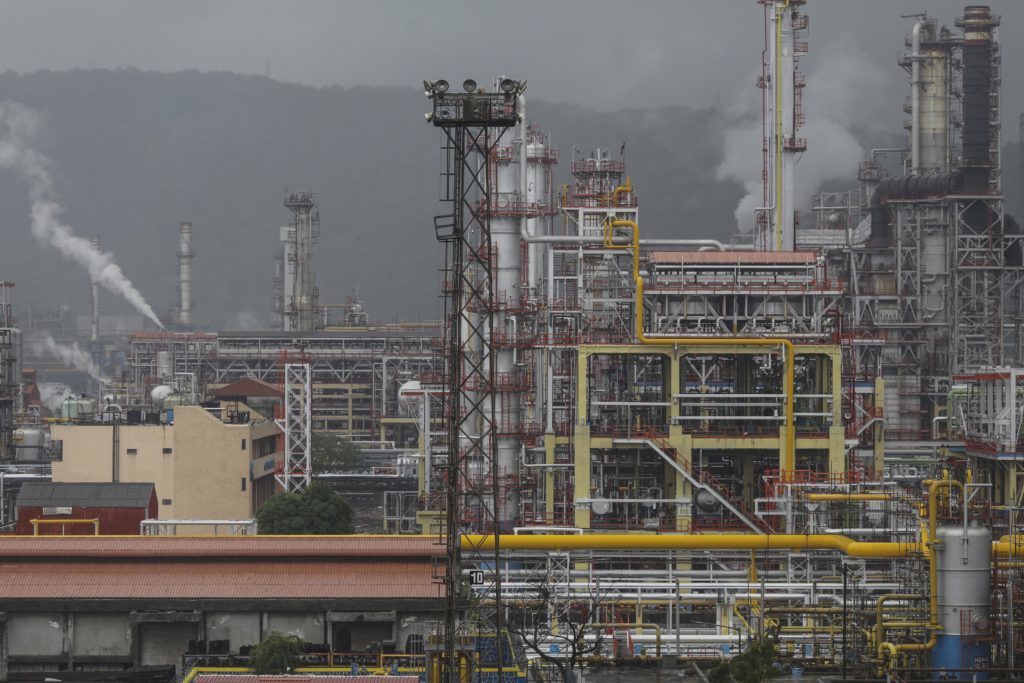
After enduring the worst downturn in a generation, a sudden surge in crude prices meant investors in Big Oil finally dared to dream of a new “ golden age” of profitability. So far, reality doesn’t have quite the same luster.
Europe’s energy giants largely delivered on what was asked of them — higher cash flow, buybacks and dividends, discipline on costs — but shareholders still found reasons for a sell off after second-quarter earnings reports on Thursday.
Royal Dutch Shell Plc fell the most in five months, despite starting the share-repurchase program investors had been demanding. Repsol SA and Equinor ASA also dropped as shareholders saw worrying trends beneath the big jump in overall profit. Only France’s Total SA seemed to give everyone what they wanted.
The majors have “further work to do to capture the full free cash flow per barrel upside at higher oil,” said Christyan Malek, an analyst at JPMorgan Chase & Co. Investors are starting to ask the question: “Where is the cash?”
The market’s reaction illustrates the uncertainty that still bedevils the oil industry. Even with crude trading near a three-year high, questions remain about how much companies are spending, whether they can keep a lid on costs, and the resilience of earnings from refining and chemicals.
Negative Reaction
For Shell, Europe’s largest company, the announcement that it was finally starting a $25 billion share buyback didn’t seem to soothe investors. Cash flow of $11.6 billion was the highest since 2014 — when crude averaged over $100 a barrel — but only after excluding working capital movements.
Net income fell short of even the lowest analyst estimate and the company’s shares kept falling despite reassurance from Chief Financial Officer Jessica Uhl that it was largely the result of one-time issues, such as currency changes.
Equinor posted a 31 percent jump in profit, beating analysts estimates, yet shares fell as much as 2.1 percent. The state-controlled Norwegian oil and gas producer said costs rose 14 percent in the second quarter, boosted by increased spending on new fields, more wells starting output in its U.S. onshore business, and higher maintenance activity.
Historically, as crude prices rise Big Oil’s costs have tended to increase because everything from advanced drilling rigs to the workers who operate them become more expensive. Investors are watching closely for signs that this pattern is repeating.
Spain’s Repsol fell as much as 2.7 percent as higher oil output failed to compensate for weaker earnings from producing chemicals.
French Champion
Total delivered the only unabashed quarterly performance, accelerating its emergence from the downturn by raising its production target for the second time this year. Oil prices are rising just as the French company reaps the benefits of project startups from Australia to the Arctic, plus a series of acquisitions. Its shares gained as much as 1.8 percent.
It was the “standout performer” of the second quarter so far, Lydia Rainforth, an analyst at Barclays Plc, said in a note. “All divisions are performing slightly better than expected with production growth guidance lifted” and costs savings set to surpass the $4 billion target.
Total will be the company to beat when the two U.S. integrated oil giants — Exxon Mobil Corp. and Chevron Corp. — publish their earnings on Friday.
Recommended for you
